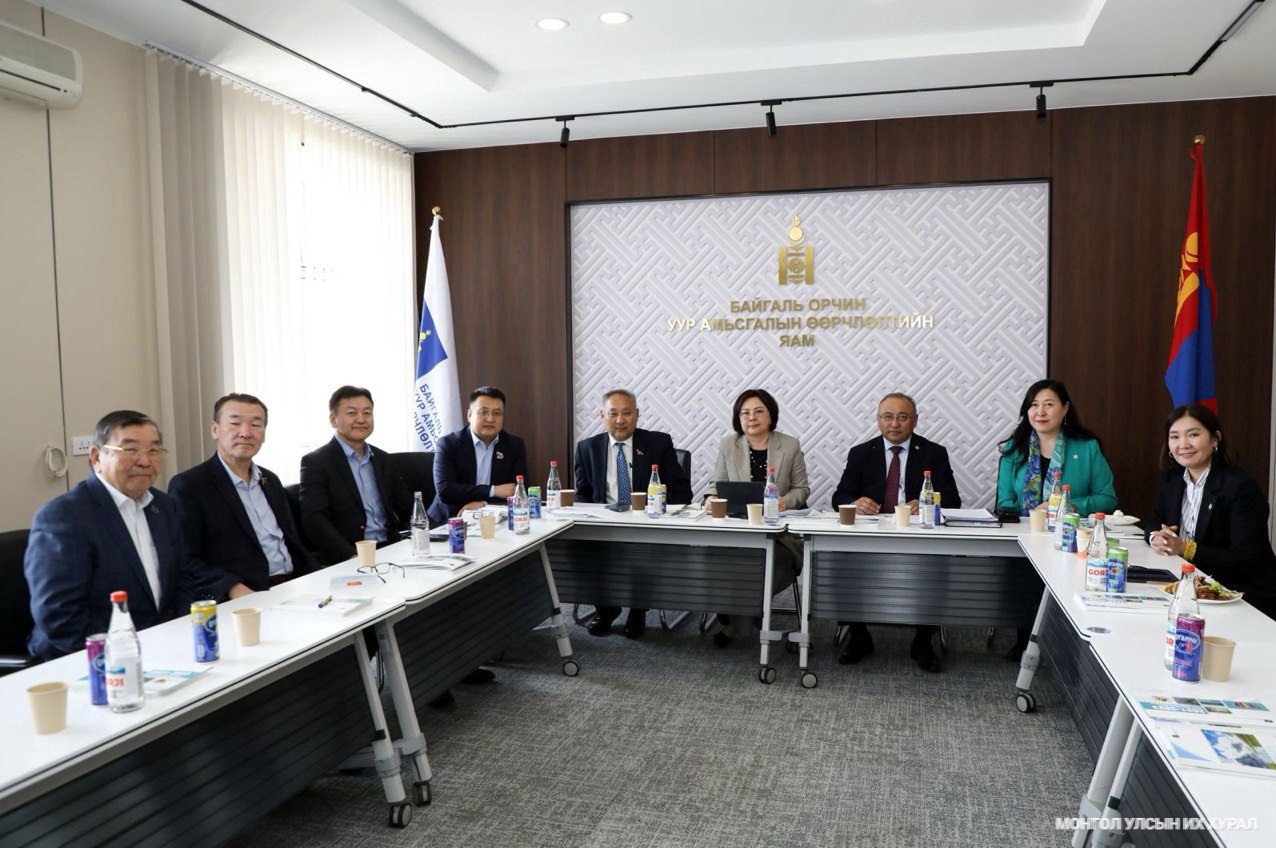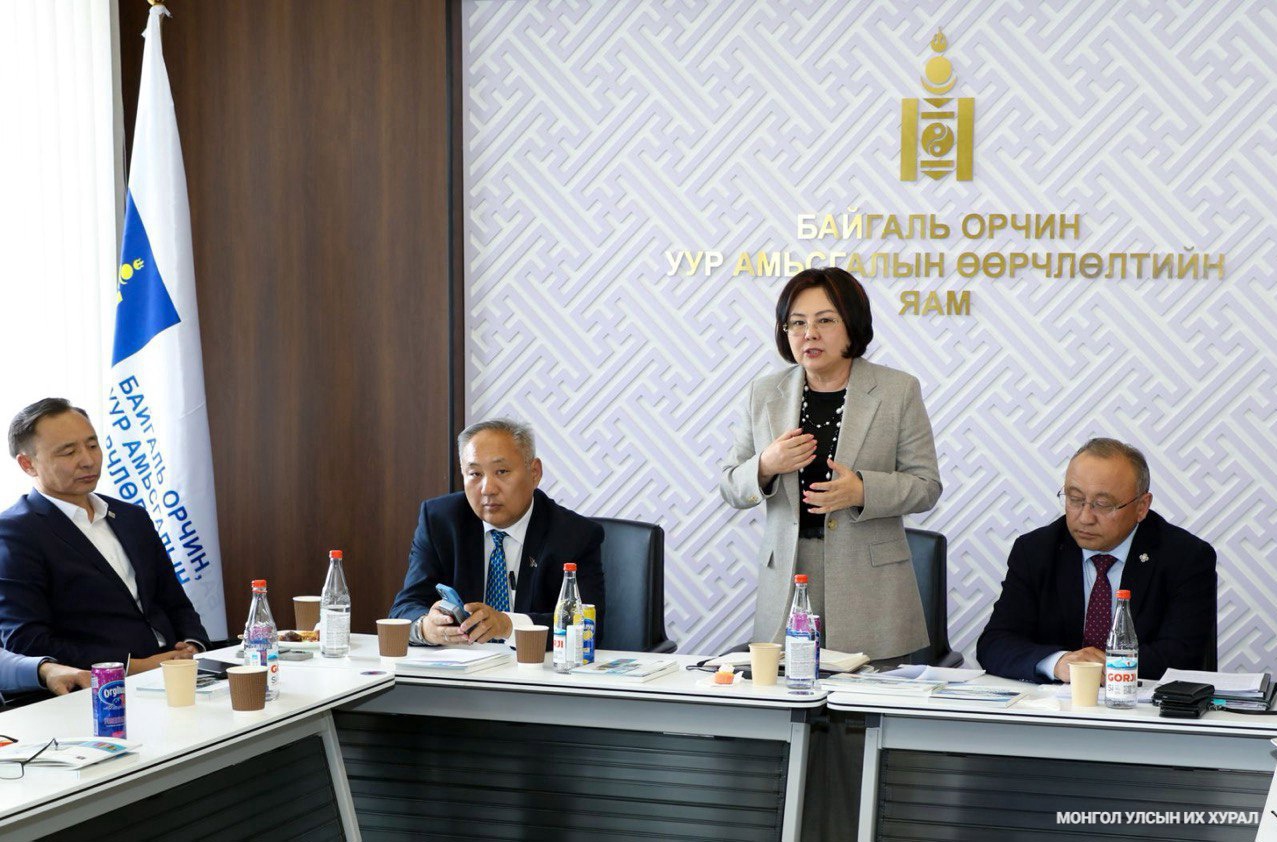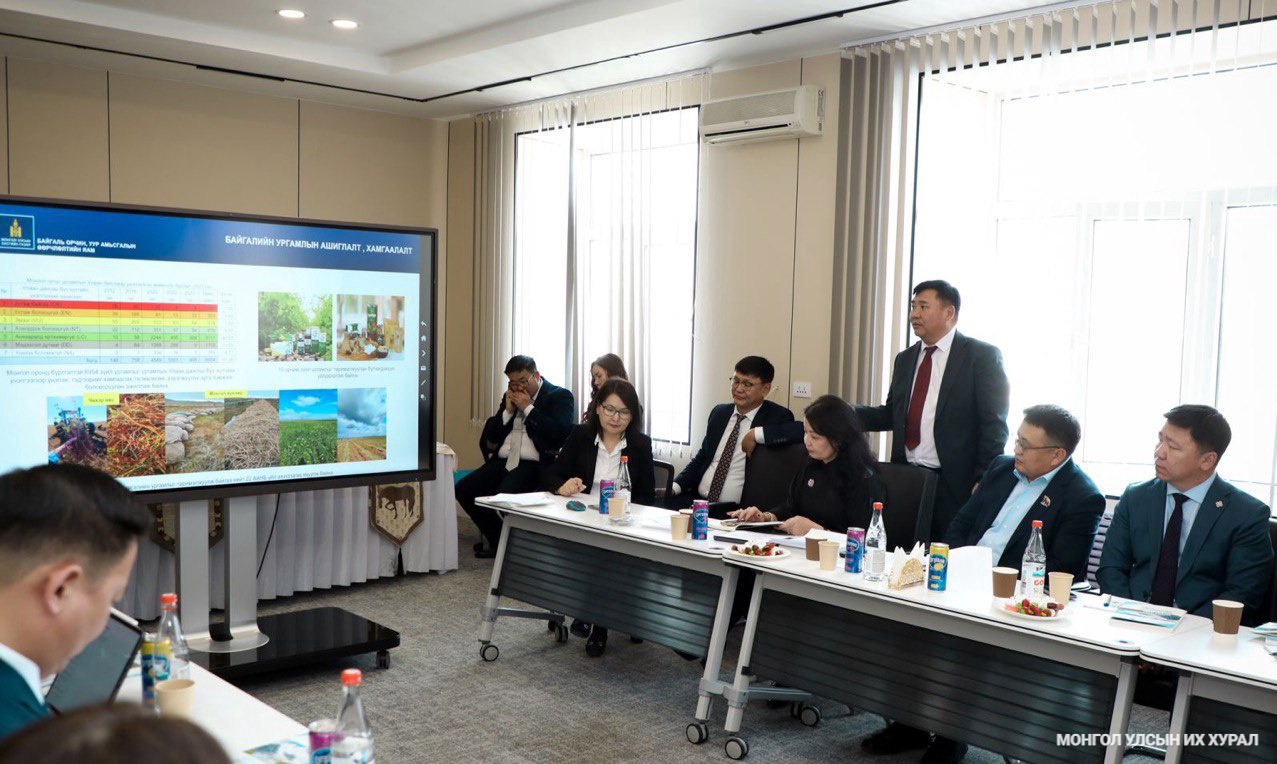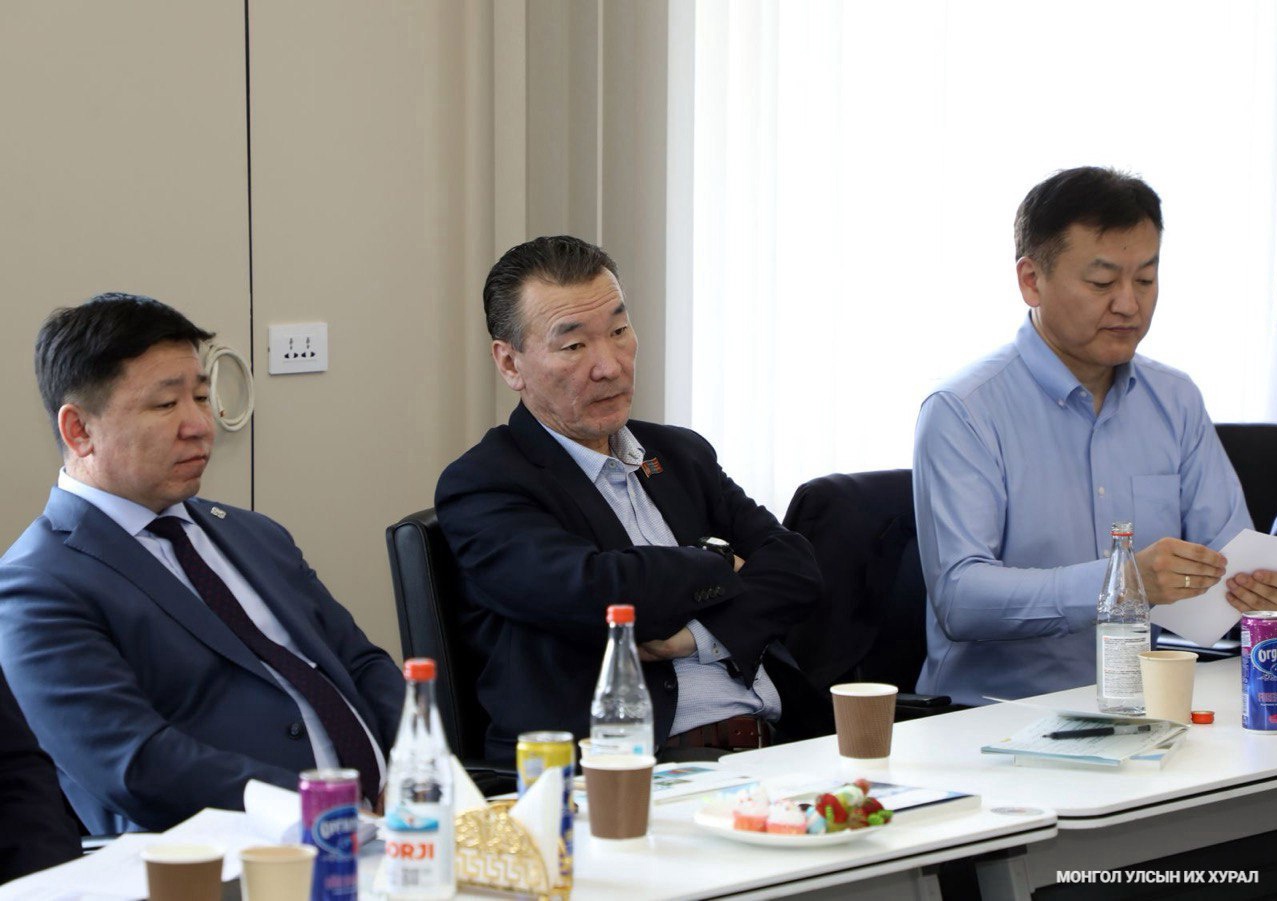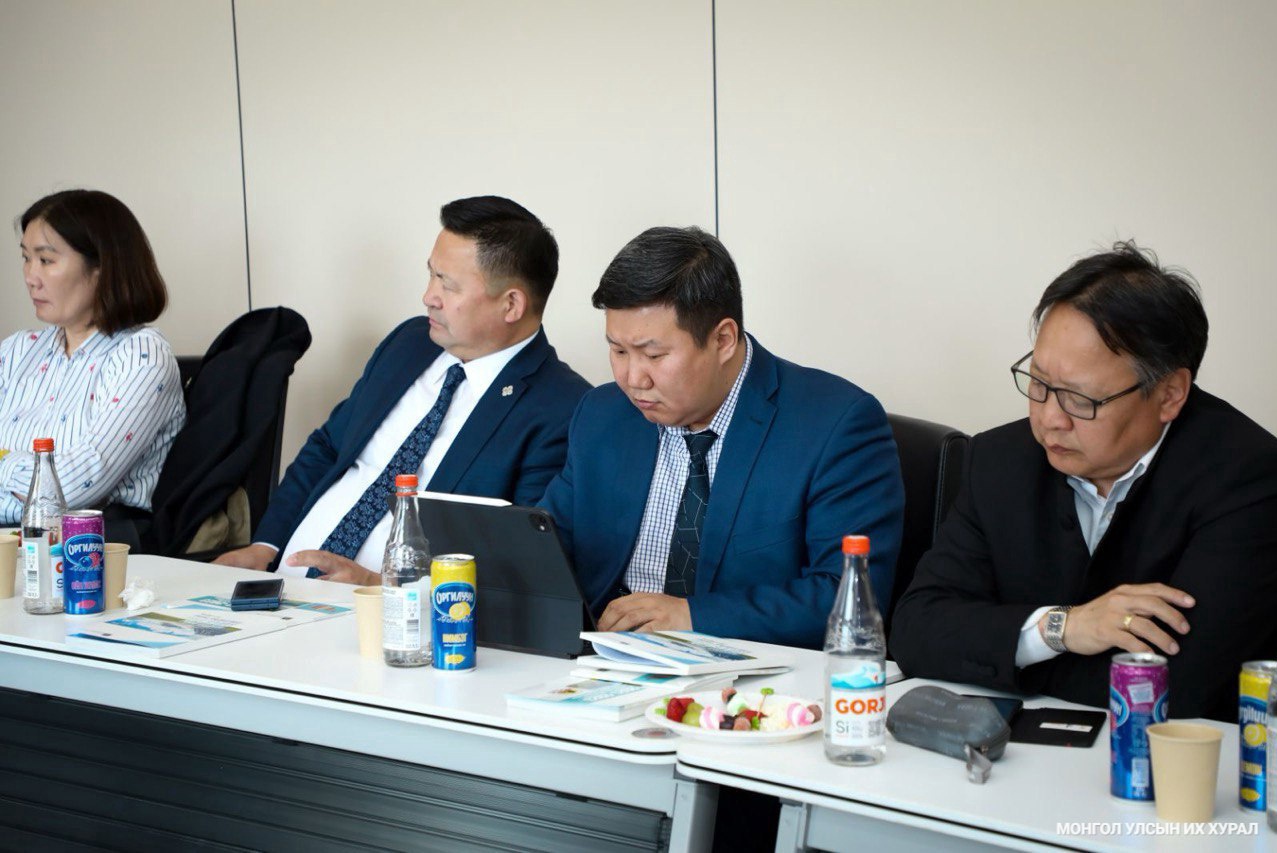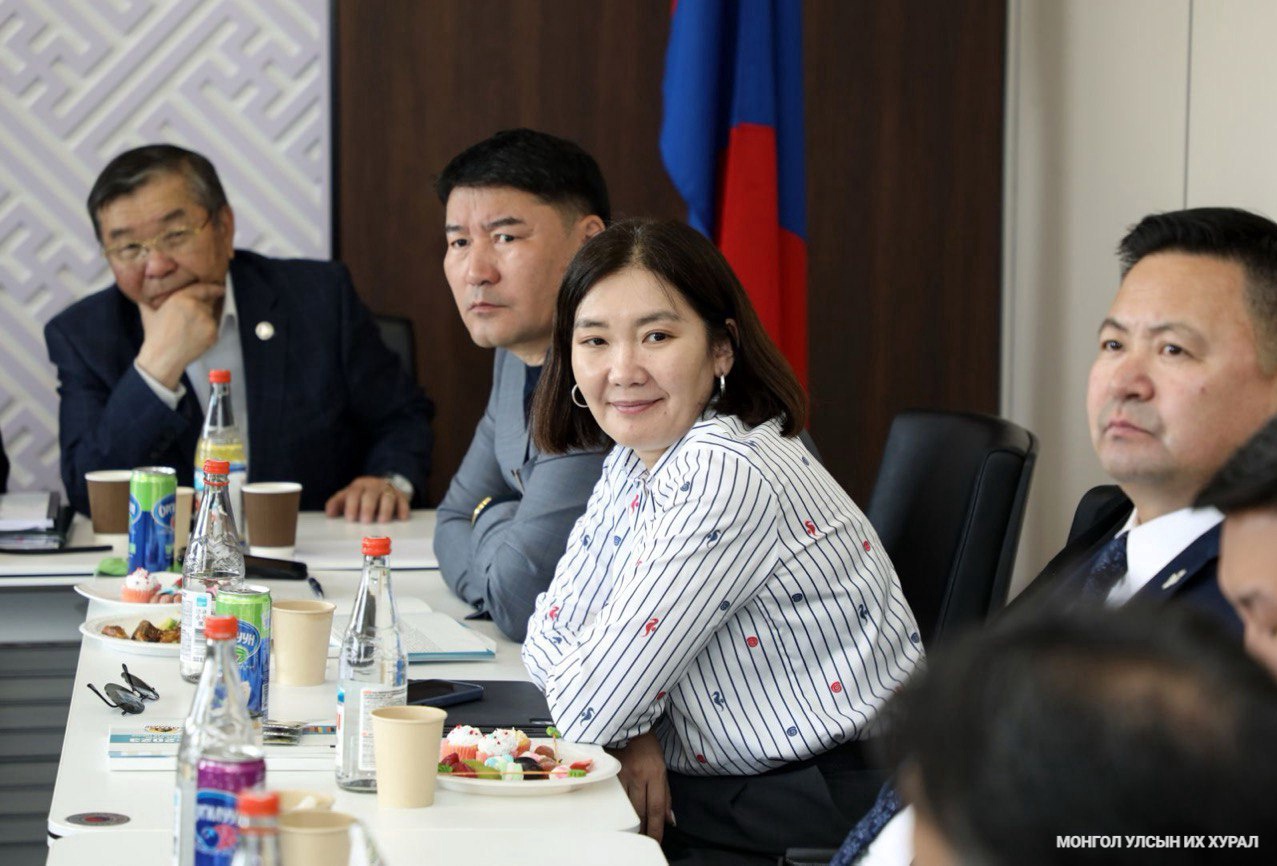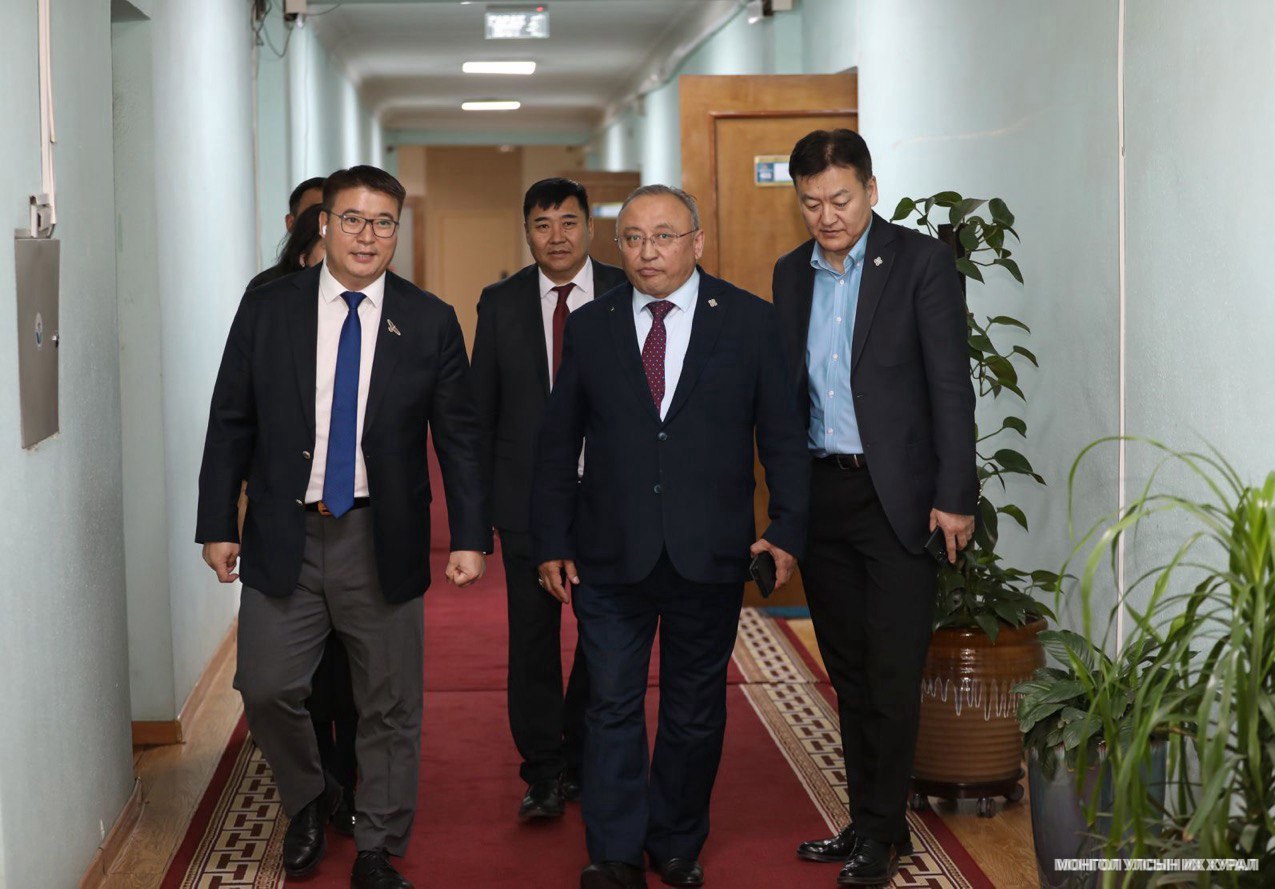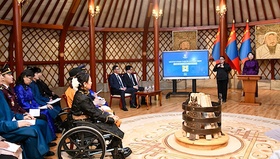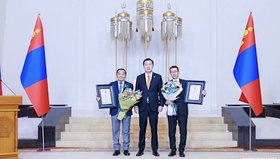On May 5, 2025, members of the Standing Committee on Environment, Food and Agriculture of the State Great Hural (Parliament) visited the Ministry of Environment and Climate Change to review the goals and activities of the sector’s legal reforms.
During the visit, Chair of the Standing Committee B. Beisen and MPs G. Ganbaatar, S. Ganbaatar, Ts. Munkhbat, L. Munkhbayasgalan, B. Naidalaa, A. Undraa, D. Jargalsaikhan, R. Seddorj, and G. Khosbayar met with Minister of Environment and Climate Change S. Odontuya and senior officials of the ministry to exchange views.
At the outset of the meeting, Minister and MP S. Odontuya delivered remarks, noting that Mongolia is a party to the three major international conventions: the United Nations Framework Convention on Climate Change (UNFCCC), the Convention on Biological Diversity (CBD), and the United Nations Convention to Combat Desertification (UNCCD). She highlighted that under these conventions, research is conducted every two years and that countries around the world are giving increasing attention to climate and environmental issues, organizing high-level conferences. She also announced that Mongolia will host the 17th Conference of the Parties (COP-17) to the UNCCD in 2026 and invited members of the Standing Committee to take active leadership roles in the event.
Kh. Munkhzul, Director of the Integrated Policy and Planning Department of the Ministry, presented on the sector’s legal reforms and activities. Her presentation titled “Mongolia’s Development Future and Biodiversity and Genetic Resources” covered a wide range of topics including the conservation and sustainable use of animal, plant, forest, and water resources; progress on the national “Billion Trees” campaign; management of protected areas; waste management; alignment of national policy documents with international conventions; objectives of the Rio Conventions; the status of climate change, desertification, and land degradation; draft legislation; and environmental standards currently in implementation.
She further outlined upcoming measures such as introducing policy and legal reforms on the green economy, green development, and climate change; amending or revising 12 sectoral laws; and drafting the first Climate Change Law. The strategy to achieve net-zero greenhouse gas emissions by 2050 (LT-LEDS) will also be developed and adopted. Moreover, Mongolia plans to implement the global “30 by 30” initiative to expand its network of protected areas, improve protection management, introduce integrated water resource management, and launch water storage projects. Community-based conservation management that respects local culture, traditions, and rights will also be promoted.
Standing Committee Chair B. Beisen emphasized the importance of leading the country’s efforts in hosting COP-17 and stated that the Standing Committee will support the necessary budget and financing for the event.
MPs asked questions and received responses from the Minister and officials. They stressed the need to take local characteristics, leadership, and public input into account in water pipeline projects in the Gobi region. They also emphasized the importance of clearly communicating the environmental restoration process and the project’s social and economic impact to the public.
Additionally, MPs inquired about the construction, financing models, and mechanisms for the water pipeline projects in the Gobi, as well as the outcomes of transboundary water agreements. They also raised further questions regarding the improvement of the sector’s legal framework and the technical and economic feasibility of the Orkhon-Ongi water transfer project, according to the Press Office of the State Great Hural (Parliament).

 Eng
Eng  Монгол
Монгол